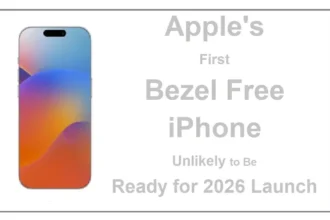Apple Podcasts, once the undisputed leader in the podcasting space, is now experiencing a significant decline in its market share, currently holding just 12% among weekly podcast listeners. This marks a stark contrast to its previous dominance, as platforms like YouTube and Spotify have surged in popularity, capturing 31% and 21% of the market share, respectively. This information will help you to understand theimplications for the podcasting industry, and the future outlook for Apple Podcasts.
Recent Released: Disney Plus Involving Environment Iceland With New 3D
Introduction
The podcasting landscape has evolved dramatically over the past few years, with a notable shift in listener preferences towards platforms that offer more integrated and engaging content. As the industry grows, Apple Podcasts finds itself at a crossroads, grappling with competition from platforms that provide visual content, seamless user experiences, and innovative features. Understanding the reasons behind Apple Podcasts declining market share is crucial for content creators, advertisers, and the platform itself as it seeks to adapt to an ever-changing media environment.
Factors Contributing to Market Share Loss
Shift to Visual and Integrated Content
Rise of Video Podcasts
YouTube has emerged as the leading platform for podcast consumption, with 31% of weekly podcast listeners using it as their primary source. The platform’s ability to offer both audio and visual content appeals to a broader audience, particularly younger listeners who prefer visual engagement. Nearly 10% of weekly podcast listeners now exclusively watch video podcasts, a trend that Apple Podcasts has not effectively capitalized on despite supporting video for years.
Spotify’s Integrated Experience
Spotify, holding 21% of the podcast market, combines music and podcasts into a single platform, enhancing user convenience. Its aggressive investment in exclusive podcast content has attracted both creators and listeners, further solidifying its position in the industry. The integration of music and podcasts provides a seamless experience that resonates with users, particularly those in the younger demographic.
User Experience and Accessibility Issues
User Interface Challenges
Apple Podcasts has faced criticism for its confusing user interface, which detracts from the overall listening experience compared to its competitors. Despite some recent improvements, many users still find the platform less intuitive than alternatives like Spotify and YouTube, which offer more user-friendly experiences.
Limited Availability
Historically, Apple Podcasts was not available on Windows or Android devices, limiting its reach. Although Apple has recently made its podcast library accessible online, this may not be sufficient to regain lost users. The platform’s previous exclusivity has hindered its ability to attract a diverse audience.
Changes in Listener Metrics
Tightened Reporting Metrics
Apple has adjusted how it counts podcast downloads, leading to a significant drop in reported listener numbers for many shows. This change has affected advertising deals and may discourage creators from using the platform, as fewer downloads can impact visibility and revenue. The shift to disable automatic downloads for users who haven’t engaged with a show recently has resulted in a more accurate but lower count of active listeners.
Market Saturation and Content Fatigue

Content Overload
The podcasting industry has seen an influx of new creators, leading to content saturation. Many listeners experience fatigue from the sheer volume of shows, which can dilute the quality and appeal of available content. As audiences are inundated with options, they may gravitate towards platforms that offer curated experiences or unique content, further disadvantaging Apple Podcasts.
Future Outlook
The decline of Apple Podcasts reflects a broader trend in content consumption, where users are gravitating towards platforms that offer diverse and integrated experiences. While Apple still has a vast user base and brand recognition, it will need to innovate and adapt to regain its foothold in the podcasting landscape. As the industry evolves, content creators and advertisers must also adjust their strategies to align with changing listener preferences and platform dynamics.
Table: Podcast Market Share Comparison
| Platform | Market Share (%) | Key Features |
| YouTube | 31% | Video podcasts, algorithm-driven recommendations |
| Spotify | 21% | Integrated music and podcasts, exclusive content |
| Apple Podcasts | 12% | Audio-focused, recent UI improvements |
Finally
The combination of these factors has contributed to a significant decline in Apple Podcasts market share, which now stands at just 12% among weekly listeners. As user preferences evolve towards more interactive and visually engaging content, Apple will need to innovate and adapt to compete effectively in the changing podcast landscape. The rise of platforms like YouTube and Spotify highlights the importance of offering diverse and integrated experiences to capture the attention of modern audiences. For Apple Podcasts to reclaim its position, it must address user experience issues, embrace new content formats, and leverage its existing user base to foster growth in a competitive environment.






